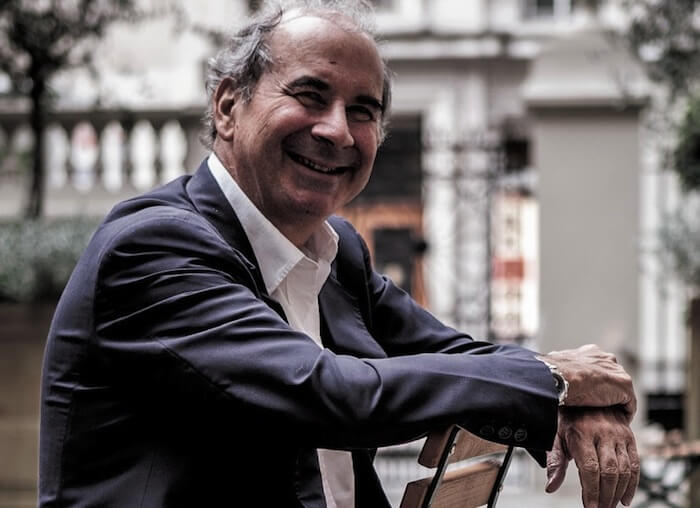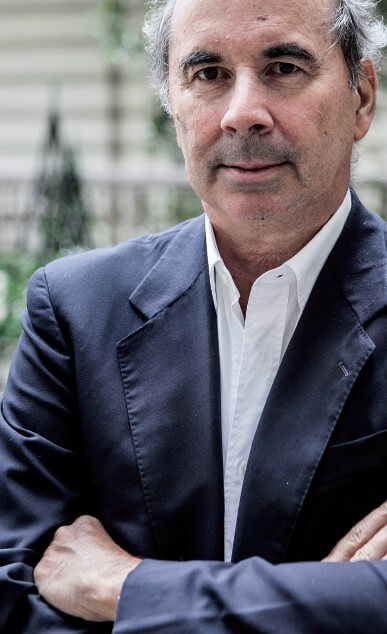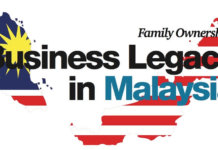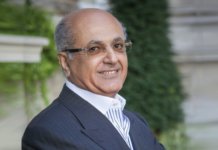French businessman and serial entrepreneur Frédéric Guinot is a force to be reckoned with. Known for his track record with successful acquisitions of small and medium-sized companies as well as the set up and sale of several businesses, Guinot is also an avid traveller with a contagious enthusiasm for different cultures.
Guinot started his career with legendary French car manufacturer Renault. Raising his profile within the company led to his first opportunity to exhibit his flair for entrepreneurship. He was handed the management duties of a casting business, one failing at the moment of handover. Guinot turned the company around, signalling the start to a long and remarkable career. He proceeded to buy and sell companies in plastic injection, castings, and machinery, mostly taking them over at the turnaround stage. Guinot’s ability to revitalise a business in limbo earned a hard fought reputation, which attracted the industry to seek out his expertise.
Today, as the CEO of Farinia, his activities are rather similar. The company he oversees specialises in forging mostly for the automotive industry and stands as a major supplier of motor vehicle parts and accessories. The group has a turnover of 300 million Euros. As part of its international strategy, Farinia has acquired or started companies in India, China, Korea and Brazil over the last four years. Guinot also owns a trading company and an engineering company, while simultaneously entertaining some activities in private equity. Guinot’s activities with Farinia continue to impress his peers, as he’s been recognised internationally for his achievements.
He was not insistent at the outset of his career to create a family business; nevertheless his three adult children are today shareholders in the business. Yet, none of them have joined their father in his activities. Frédéric Guinot tells Tharawat magazine how he has instead focused on transferring the legacy of entrepreneurship.
What is the definition of a successful entrepreneur?
That’s a good question. I think to be successful in business you have to be good at strategy, execution, and decision-making. But I also think that you need a lot of luck. To me, a successful entrepreneur is someone who has the luck to create wealth; it greatly depends on the people you meet, the value you’re creating, and not least of all on how you use your brain. The intellectual capital that you are developing is the core of the success that you will experience. I don’t think that money would be my metric on that one. How do you measure it? By the degree of freedom you experience, and your independence of thinking.
Do you think that entrepreneurs in fast- growth economies are facing particular challenges or opportunities?
I strongly believe that there are a lot of opportunities in this growing world. There are over seven billion people. There is a need for everything. And I think there is a big need for entrepreneurship because if you count only on the public sector initiatives nothing will get done. The challenge for the entrepreneur of course is to be able to address the needs of the poor people. This would be the biggest contribution to world peace; I believe that only entrepreneurs can be creative enough to find ways to address the needs of the bottom of the pyramid. How do you turn an idea into a business? You have to try and try fast. Don’t wait. Try and fail fast. I mean, you might have a window of opportunity that might close two months later, especially in this world where globalisation and technology moves very fast. You need to find the right people to go with you. If you lack any competence keep educating yourself.

Should entrepreneurs think about creating a family business from the very beginning?
Well, in my case, it happened later. When I started I had no clue about this whole concept of a family business because my family is very small. But thinking about the benefits of a family business, I think it is a good way to go. I will try not to force but to encourage my children to go into that direction. However, if they believe that family governance is too restrictive, I think there is little chance that we can build a family business.
Besides whether you can build a family business depends on the quality of your family relationships. That’s the starting point. I’m blessed that I’m still married and that I’m happy with my wife. I’m also really happy with my kids. To enforce this I’m doing simple things like gathering the family a couple of times per year in a nice place so they have some pleasure to be together. I’ve been trying to bring them to some family business seminars, but the interest is not there yet. I am persistent though. In the meantime I help them set up their own business and realise that it could be part of a family business later. If they get started with the idea to be an entrepreneur by themselves, I think they would understand the concept much better.
How can family-owned businesses use entrepreneurship to their advantage?
I don’t think anyone is a born entrepreneur. You become an entrepreneur over time and with experience. In fact, it’s a journey. You can realise your dreams only if you try. I am in favour of the family business at least trying to help young entrepreneurs get started and see what their projects lead to. You cannot learn entrepreneurship by reading books. You can learn a lot of things from the books but not the entrepreneurial spirit; you have to develop that through practice. In my case, in our mindset we are a family business. It was a good thing for me, to have my own company. And this is the legacy I want to hand down to my children. My legacy to them is entrepreneurship.
Tharawat Magazine, Issue 16, 2012
















